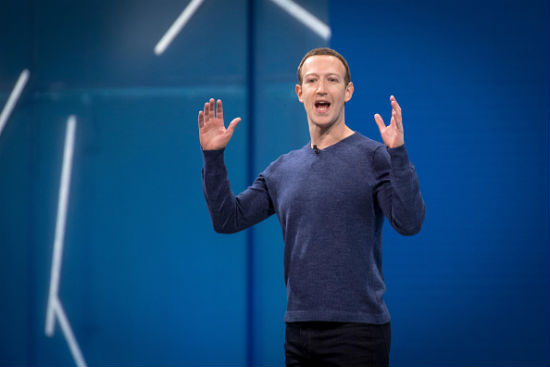Facebook announced a significant redesign on Tuesday, rolling out features geared toward privacy in response to years of scandals over its handling of private user data and status as a vehicle for Russian election interference. But critics say the new features could cause problems of their own.
Dubbed FB5, the redesign is the platform’s biggest in half a decade. Facebook CEO Mark Zuckerberg announced the new features at the company’s annual developer conference. Among them: a cleaner look; a bigger focus on private groups and events; a “Meet New Friends” function; and a dating app. Facebook’s disappearing Stories will be promoted, News Feed broadcasting de-emphasized.
“The future is private,” said Zuckerberg. “Over time, I believe that a private social platform will be even more important to our lives than our digital town squares.”
We just announced a fresh, new design for Facebook that makes communities as central as friends. FB5 is simpler, faster, more immersive and makes it easier to find what you’re looking for and get to your most-used features. #f82019 pic.twitter.com/YWIGEnpO4M
— Facebook (@facebook) April 30, 2019
The company said some of Facebook’s new features would be immediately apparent, and some would be rolled out in the coming months.
“Now look, I get that a lot of people aren’t sure we’re serious about this,” Zuckerberg said. “We don’t exactly have the strongest reputation on privacy right now, to put it lightly. But I’m committed to doing this well and starting a new chapter for our product.”
“We believe that for the future, people want a privacy-focused social platform,” he added.
Facebook has been in a PR tailspin for years. In early 2017, reports surfaced that Russia extensively used the platform to interfere in the 2016 U.S. presidential election. Kremlin-backed hackers created fake profiles, groups and events, and disseminated and amplified false news stories, to sow discord among the electorate and harm Hillary Clinton’s candidacy.
The company has also been buffeted by waves of negative headlines about its handling of private user data. In March 2018, it was reported that data-mining company Cambridge Analytica harvested personal information from 87 million Facebook users without their consent. In November 2018, The New York Times reported that Zuckerberg and Facebook COO Sheryl Sandberg slow-walked security upgrades to the platform and attempted to discredit the company’s critics. The next month, the Times reported that Facebook gave tech companies — including Spotify, Netflix and Microsoft — access to Facebook users’ personal data, including private messages.
Facebook is now expecting a $5 billion fine from the FCC.
Reports of privacy violations surfaced as late as last week. On Apr. 25, New York State Attorney General Letitia James announced that her office would open an investigation into allegations that Facebook improperly harvested the email address books of 1.5 million users without their consent, using it to target advertising.
Critics warned Tuesday that Facebook’s new features may not be as benevolent as advertised. They pointed out that hate speech, misinformation and political interference spread in private groups will be less accountable to the press, fact-checking and law enforcement.
“Not to overreact, but this is terrifying,” tweeted NBC News internet reporter Brandy Zadrozny. “Facing criticism that Facebook allows people to organize and spread misinformation, dangerous conspiracy, and hateful ideology content in groups, Zuckerberg decides to lock it down even tighter.”
Critics have long contended that Facebook doesn’t sufficiently monitor hate speech and extremism on the platform. On Tuesday, the Wall Street Journal reported that Facebook didn’t take down hateful rants from an Islamist preacher, who allegedly helped plan and execute the Sri Lankan Easter bombings, until the newspaper inquired about them.


















